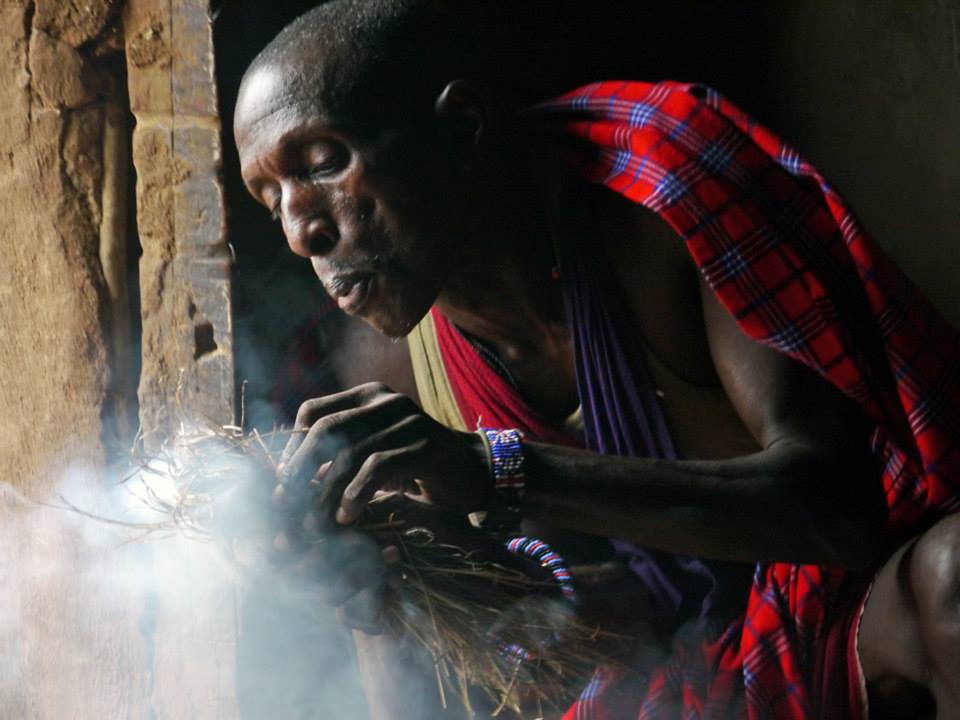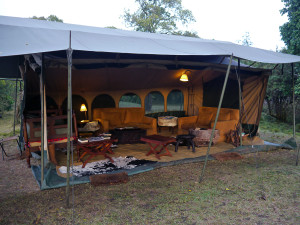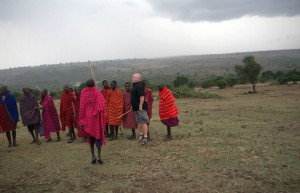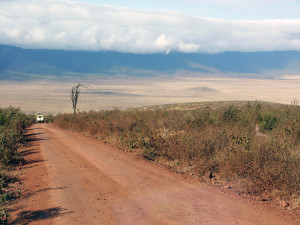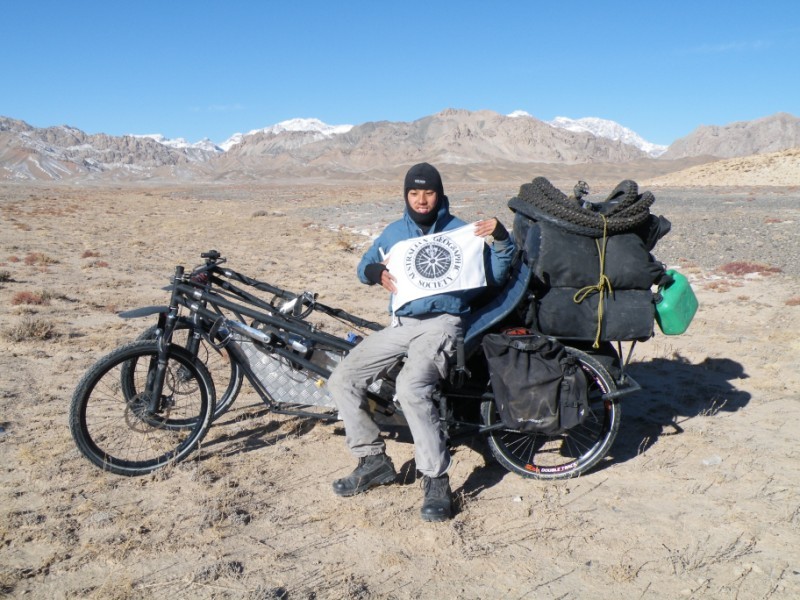I fell in love with the Maasai the first time I came across them whilst travelling across the endless plains of Serengeti. There, among the dust, a beginning red sunset and the wild animals, a Maasai elder walked past a herd of buffalo with his cattle. Fearless, proud and I met his eyes; he smiled and looked genuinely uncontrollably wild. From that day, I had one wish only, to once upon a time, live and travel with the Maasai.
During the year of 2000 I spent several months walking from Talek in Masai Mara, Kenya to a not too far off a place called Handeni, down along the Pangani River in Tanzania. It was a quite difficult journey in many ways. The idea had been to do a walk passing through all 16 clans of the Maasai, but due to many misunderstandings, disease, heat and a terrible drought, many cultural complications and internal problems within my own group, I was quite unhappy with myself and the journey at the end. Sure, I had learned a lot about the Maasai, but I had also experienced a lot of the more negative aspects of their culture and their situation in a fast growing East Africa. I did many, many mistakes due to my own personal situation and I should –in hindsight- probably have waited to do this journey until present days when I know more about life, I live in peace and I better can put things in perspective. But, having noted all these reservations down, I am happy I have had a chance to experience the Maasai closely for a while. It was still a journey of a life time and they are an amazing group of people who still try to keep many of their old traditions, but I fear it will be harder to do by the day. But we, modern homo sapiens sapiens, still have a lot to learn about life from the Maasai as how to see life, nature, conservation and avoid modern diseases like stress and becoming burn out. So time is running out when it comes to the possibilities to learn from the Maasai, so do go to East Africa as soon as possible!
Since the year of 2000 I have been back to East Africa three times and during my last visit, a week or so ago, I met one of the two Maasai youngsters who made our journey as good as it could during the circumstances we experienced, Oleleuka from the il-loitai clan of the Maasai. The il-loitai have their base inside the Loitai Hills and seem to be one of the few clans who still put a lot of effort into keeping with their old traditions, like having laibons (traditional doctors) and when I finally was able to talk to Oleleuka by phone, he like most East Africans have mobile phones today, he immediately said that a new laibon will be welcomed to the il-loitai at the end of August and he wanted me to come. I said I couldn´t come this time, that I was ill prepared coming from an Expedition having pushed a pram through England, but it would be great if we could meet in Narok, on our way to Maasai Mara and a camp named after the most famous Masai laibon, Olonana. So we agreed to meet and during the whole journey in a Landcruiser from Nairobi I felt on one side very happy to once again get a chance to see Oleleuka who I hadn´t seen in ten years or more. But I was also hesitant because I was ill prepared in the sense I knew he expected me to bring money and other gifts. I just hadn´t had the time to prepare gifts and due to the fact I couldn´t buy dollars in Nairobi, I had very little with me, but hoped it wouldn´t be the main issue of us meeting. I felt, once again, embarrassed over my own shortcomings and my chaotic life.
It was great to see Oleleuka again. He looked more or less the same, older of course, he was fatter and this time he was dressed in modern clothes and there were few hints except the gap in his lower teeth and his pierced ears that he was a il-loitai maasai. We sat down and talked just outside one of these big curio shops full of gadgets and he said he had been a politician for a while, but that his party lost the last election and he didn´t have a job nowadays to make hard cash. He had married a second wife and spent most of his time back in the village. We talked a bit about Lekinjot, the second young man who joined us, a vivacious, charismatic man who had been outside Kenya, just like Oleleuka, several times. He was working as a guide around Talek, owning his own car, together with his wife. I told Oleleuka I had no time to see Lekinjot this time, but I was hoping to come back better prepared next time.
I also immediately explained for Oleleuka that I just didn´t have any gifts and not enough dollars and I could see he initially was disappointed. I understand Oleleuka. He had told everyone he was meeting me, I had been given the Maasai name Olorogwa back in 2000 (the fierce one, the fast one) and they therefore had expectations and I understand his fear to return home without gifts. And I honestly feel ashamed not having had enough time to better prepare everything and I told him I will try to be a better friend in the future and thought it most important that we met again. I find it one of the most challenging issues of travelling in Africa, the constant need from so many to get a little help to survive. And I constantly have a disturbing feeling of not doing enough to help, but I try to explain I have a family to support and I barely have enough to do that. Few believe me. Which I also understand.
Once we arrived at Camp Olonana, I asked around to see if we could do a visit to a Maasai village and just above our camp there were three villages catering to these wishes. They all belonged to the il-siria clan, which I remember didn´t have the best reputation among the il-purko and il-loitai clans, because they were said to eat things which didn´t correspond with which was considered as proper food among the Maasai. For example, they are supposed to not to eat game meat, however I understand, the circumstances have made that hard to avoid.
I don´t know what I think about visiting these Maasai villages who are catering for tourists. On one side, there´s a feeling of intrusion even though you pay for the privilege, but as a whole I think it is much better than bad. It does give the village hard currency, helps to preserve some of their traditions, gives a brief insight to their exciting way of living and I believe tourism is one of the major ways to do just that. The other African tribe’s don´t generally care as regards to this issue. At least not off record. They still see the Maasai as a former bully or today as very backward group of people. But a Maasai Tourist village like that has to be run professionally. Unfortunately me and my group were badly deceived by the son of a chief from a village who generally didn´t deal with tourism. So, we ended up at the wrong village, he bypassed the village we were initially heading for, once inside we were immediately stripped of 30 US, they behaved rudely to my guests questions and almost immediately ushered us into buying trinkets too extremely overflated prices and when we didn´t buy, they told us rudely to leave. This son of the chief, I have come across so many of them throughout my journeys globally. They´re spoilt, drink too much and just try to find ways to finance their alcoholism. I was ashamed in front of my clients who had to witness this disaster, deception and I was very upset with myself.
I have a full understanding of the complications involved having lost almost all your land, having been politically marginalized and not knowing where you belong anymore, but we are all children of our roots. As a lad from the middle north of Scandinavia, slyness just ain´t considered a good trait. And let me just add before I continue, that I have met traditional people like the Maasai (even other Maasai clans, like the il-kisongo on the Tanzanian side for example) in quite a few other places on earth who are in the same situation of slowly getting eaten up by modern society and getting marginalized politically, who have adapted tourism as part of survival, and who are looking for every single way to survive, but few would do this. But the fault is mine, I should have checked everything out beforehand. My personal opinion is, due to how fractured the Maasai are as a tribe in Kenya, this wouldn´t have happened among the il-kisongo, the biggest clan of all Maasai, on the other side of the border in Tanzania. They have always been stronger and more powerful compared to the others and didn´t need to be as sly to survive.
Once on the Tanzanian side, once again passing over the endless plains of Serengeti, seeing the same view as back in 1998 when I first came across this beautiful and charismatic people, I once again fell in love with the Maasai. They are a unique group of people and even though they have been heavily romantized throughout recent history by especially the British, there´s no doubt a visit to the Maasai will enhance your life in most positive ways. It is a vanishing culture and in many ways, by visiting the Maasai, you will look into yourself in new ways. Learn from them before it is too late. For me, my most important lesson has been, we are all human beings at the end of the day. That knowledge makes life so much easier.
